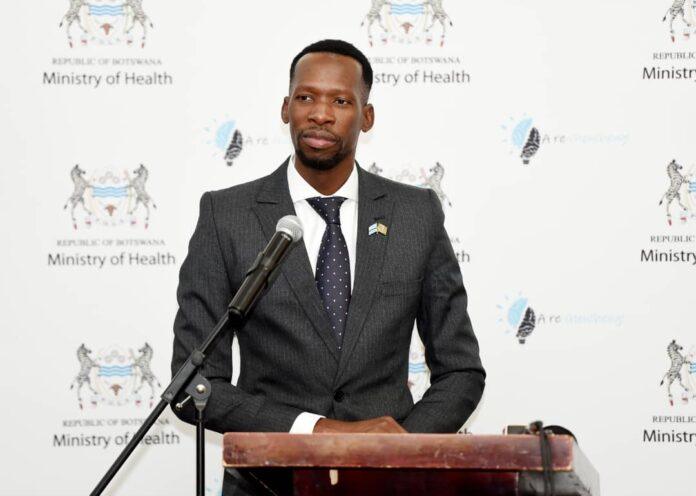Kutlo Motseta
23rd May 2025
Amidst rising tensions between the government and its doctors concerning salaries, the Assistant Minister of Health, Lawrence Oookediste, delivered the keynote address at the second Botswana Society of Obstetricians and Gynaecologists Congress on Friday 23rd May at the Sir Ketumile Masire Teaching Hospital.
The minister implored the medical fraternity to bear with the new administration as it gets its house in order.
“People in the sector feel no one cares standards are falling … how about we take a pause six or seven months I wouldn’t be talking to you it could be someone else … because some of you said, after 58 years things have to change … having changed you have given us a clear mandate … we are in rut and want to get out of it,“ said Oookediste.
He said, “ … we are going to drive you to where you want us to go … As we travel when we refuel, we can’t have our health workers disembark and say we are going to go on a strike otherwise we will never make it.”
Ookediste said, “Please don’t give up on us … we are government, we have significant leverage … we have threshold in terms of borrowing … we can leverage on GDP … if you put lots of pressure on us, government may be forced to go all out and borrow. That will make you happy in the short term and we will win elections …. But eventually you won’t get what you want. Let’s not fight and down tools, lets fight and speak truth and renumeration.”
“For now, give us a few years … In four years, you can kick us out for now give us a chance,” he stressed.
He said that the government has lots of money, which had been mismanaged and lost through corrupt tender processes.
“ARVs are fleecing us out of P100 million per year …. why do you find it acceptable? [there is an arrangement] for condoms [we are] losing P50 million a year,” said Ookeditse.
He said, “Your money is there as the tax payer … but it’s in the hands of a few entrepreneurs that’s why I get outraged when you fight us … when we can fight together.”
After discussing governance issues, the minster addressed some of the medical problems facing women that the public needs to be sensitised about, such as menopause.
“[it’s a] stigma in society, sometimes they don’t get to sustain their relationships … get married … live on their own … [some] end up being brain dead and get labelled a witch … One has to acknowledge that we have to do something about it,” he stressed.
He noted the statistical shortage of doctors in the country, which he said stands at four doctors per 10 000 people and 35 per 10 000 for those on medical aid, which is held by the 17% that can afford it.
The minister discussed the government’s aspirations to train more doctors to meet the national demand, adding that their skills can be exported if they can’t be absorbed locally.
Various doctors made presentations to their colleagues.
Dr Dudu Rubgega made a presentation on Laparoscopy, discussing its benefits such as smaller incisions, less blood loss, reduced hospital stays and less operative pain.
She encouraged doctors not to rush to operate, saying: “A good surgeon know to operate, a better surgeon knows when to operate and the best surgeon knows when not to operate”
Professor Leon Snyman, a South African based private practitioner who also works at the University of Pretoria, implored his colleagues to focus on their core competencies, not to take on surgeries they are not comfortable performing and to know the medical history of their patients before surgery.
Dr Ponatshego Gaolebale who is based at Sedilega Private Hospital in Mogodisthane, Botswana, made a presentation on menopause which he said affects 1.1 billion women globally. He discussed its symptoms which include: a decline in fertility, hot flushes, sweating and shivering, anxiety, insomnia, loss of libido, brain fog, joint pains and formication.
He advised women not to unnecessarily degrade the quality of their lives in fear of embarrassment, citing a patient who wanted to quit her job as a teacher to avoid being ridiculed by school kids, saying, “when you are having hot flushes, people generally can’t see.”
Dr Rebecca Luckett who is an associate professor at Harvard University and adjunct medical professor at the University of Botswana made a presentation on cervical cancer and noted that it’s “the leading cause of death amongst women in Botswana … 74% of women with cervical cancer have HIV.”
In light of her research and Botswana’s national cervical cancer challenge, she encouraged public awareness campaigns and advised her colleagues to test patients as soon as possible and not make them queue multiple times for medical check-ups, which can present logistical challenges.
“Most women know someone who’s died of cervical cancer … need to focus on sensitivity … screen with whatever modality you have.”









